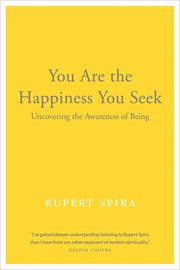Review by Booklist Review
Russell, well known for his work on the physiology of meditation, describes his personal struggle to bring science and spirit together and conducts readers through some of the more mysterious discoveries of contemporary physics. Physics--"queen of the sciences" --may seem an unlikely source of spiritual inspiration, and when younger, Russell found his growing spiritual curiosity at odds with the mechanistic science exemplified by Stephen Hawking, with whom Russell studied at Cambridge. Dropping out to study transcendental meditation, about which he has written several definitive books, he later returned to academe to engage in scientific study of consciousness and attain the insight that consciousness is what religions call God. Although the conventionally religious may take issue with Russell's effort to connect science and spirit, many, including some of them, may welcome his lucid exploration of their similarities. --Patricia Monaghan
From Booklist, Copyright (c) American Library Association. Used with permission.
Review by Publisher's Weekly Review
Russell, a "scientist at heart," seems somewhat oversold as a physicist, although his undergraduate work at Cambridge brought him into Steven Hawking's office on occasion. But his curiosity about the mystery of consciousness is real enough, leading him from a fascination with TM in his student days to studies in India with Maharishi Mahesh Yogi, to a successful career as a corporate consultant on meditation, creativity and personal development. Russell's explanations and arguments are generally clear enough-presumably well-suited for seminar audiences-if a bit superficial when presented in book format. He rightly complains that the establishment science and philosophy of the 1960s showed minimal interest in problems of consciousness, but barely acknowledges subsequent developments in neuroscience, cognitive science and philosophy of mind that have attempted more or less successfully to grapple with these problems. Instead, he offers readers an unexceptional argument for a "metaparadigm shift" in which consciousness is accepted as a fundamental constituent of the universe and of scientific explanations, supplemented by analogies between consciousness, light and God and a lavish abundance of epigrammatic quotes from Einstein, Schrudinger and Eastern religious teachers. Readers in search of "a journey of ideas that starts with science and arrives at God" can find much more to work with in the writings of Douglas Hofstadter, Paul Davies and John Polkinghorne. (Apr. 17) (c) Copyright PWxyz, LLC. All rights reserved
(c) Copyright PWxyz, LLC. All rights reserved


